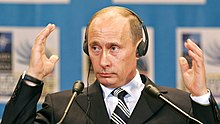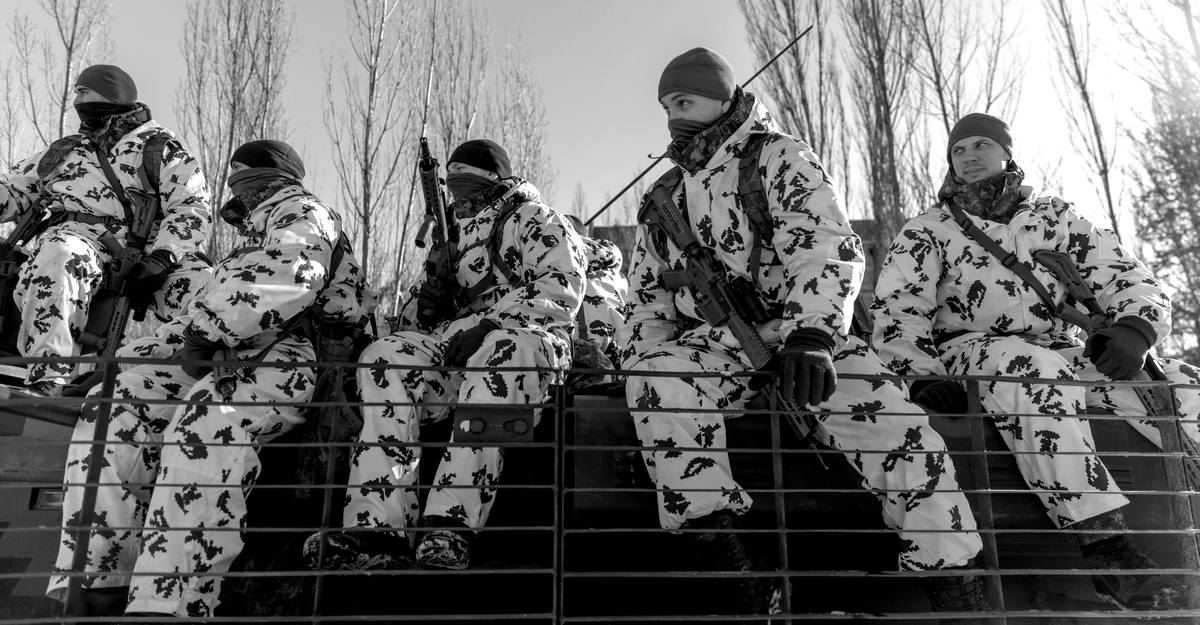How different is it really? Georgia isn't a highly populated country, but it's an extremely important one in terms of location. It carries piped oil between the Caspian and Black Seas.
In early March 2008, Abkhazia and South Ossetia submitted formal requests for their recognition to Russia's parliament shortly after the
West's recognition of Kosovo which Russia had been resisting.
Dmitry Rogozin, Russian ambassador to NATO, hinted that Georgia's aspiration to become a NATO member would cause Russia to support the independence of Abkhazia and South Ossetia.
[94] The Russian
State Duma adopted a resolution on 21 March, in which it called on the President of Russia and the government to consider the recognition.
[95]
Georgia began proposing the placement of international peacekeepers in the separatist regions when Russia began to apply more force on Georgia after April 2008. The West launched new initiatives for peace settlement, with peace proposals being offered and discussions being organised by the
European Union, the
Organization for Security and Cooperation in Europe (OSCE) and
Germany. The separatists dismissed the German project for Abkhazia approved by Georgia. Russia and the separatists did not attend an EU-backed meeting regarding Abkhazia. They also dismissed an OSCE offer to renew talks regarding South Ossetia.
[96]
Relations between Georgia and the West
One of President Saakashvili's primary aims for Georgia was to become a member state of
NATO,
[88] which has been one of the major stumbling blocks in Georgia-Russia relations.
[97]
Although Georgia has no notable gas or oil reserves, its territory hosts part of the
Baku–Tbilisi–Ceyhan pipeline supplying oil to Turkey.
[98] Russia, Iran and the
Persian Gulf countries opposed the construction of the pipeline.
[99] The pipeline circumvents both Russia and Iran. Because it has decreased Western dependence on Middle East's oil, the pipeline has been a major factor in the
United States' backing for Georgia.
[100]

Russian President
Vladimir Putin at the 2008 Bucharest Summit
During the
NATO summit in Bucharest in April 2008, American president
George W. Bush campaigned for offering a
Membership Action Plan (MAP) to Georgia and
Ukraine. However, Germany and France said that offering a MAP to Ukraine and Georgia would be "an unnecessary offence" for Russia.
[101] NATO stated that Ukraine and Georgia would be admitted in the alliance and pledged to review the requests for MAP in December 2008.
[102] Russian President
Vladimir Putin was in
Bucharest during the summit. At the conclusion of the summit on 4 April, Putin said that NATO's enlargement towards Russia "would be taken in Russia as a direct threat to the security of our country".
[103] Following the Bucharest summit, Russian hostility increased and Russia started to actively prepare for the invasion of Georgia.
[104] Chief of the General Staff of the
Russian Armed Forces Yuri Baluyevsky said on 11 April that Russia would carry out "steps of a different nature" in addition to military action to block NATO membership of former Soviet republics.
[105] General Baluyevsky admitted in 2012 that after President Putin had decided to attack Georgia prior to the May 2008 inauguration of
Dmitry Medvedev as president of Russia, a military action was planned and explicit orders were issued in advance before August 2008. Russia aimed to stop Georgia's accession to NATO and also to bring about a "
regime change".
[85]

